Inside the world of Freemasonry in Sheffield
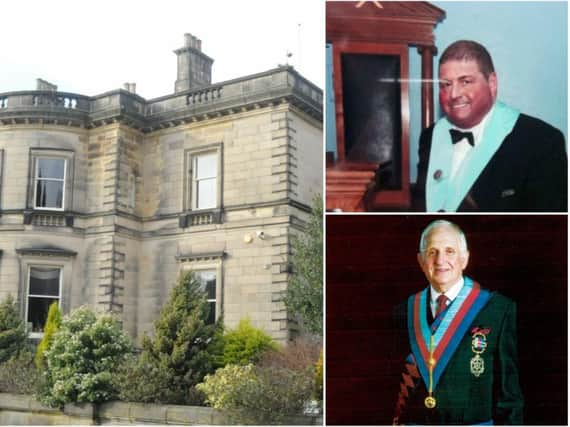

Its strange iconography and regalia, induction rituals shrouded in mystery, and privacy over membership make it ripe for conspiracy theories.
But the United Grand Lodge of England is seeking to dispel misunderstandings about its workings and called this month for an end to 'discrimination' against members, who it says are 'undeservedly stigmatised'.
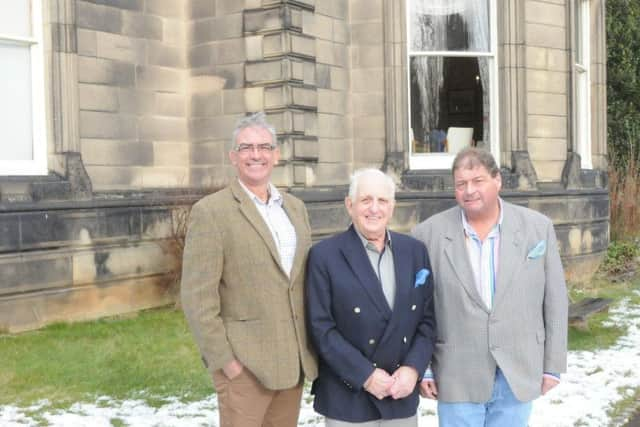

Advertisement
Hide AdAdvertisement
Hide AdFreemasons in Sheffield invited The Star on a guided tour of their home at Tapton Hall, in Crosspool, in an attempt to bust the myths and misconceptions they say continue to dog the centuries-old organisation.
The stately premises will be familiar to many who have attended weddings or other functions there, and it is open to members of the public for lunches and dinners, including special Valentine's and Mother's Day events.
But few outside the world of Freemasonry will have seen inside its three lodge rooms, where members meet most months.
The masons I meet are happy to show me round and talk about the society but ask me to refrain from photographing these rooms or divulging too much information about what happens within.
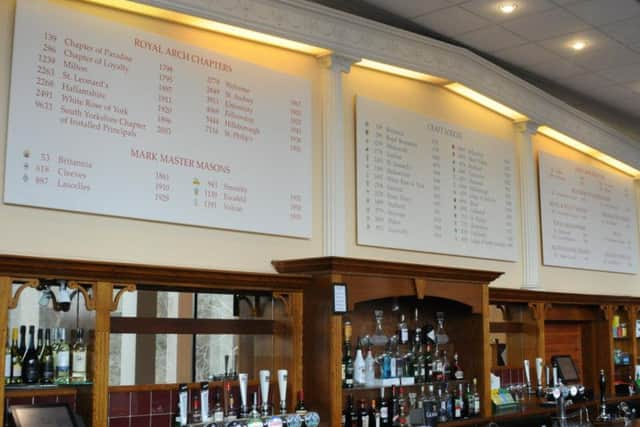

Advertisement
Hide AdAdvertisement
Hide AdThis is not because there is anything murky to hide, they point out, but because they wish to preserve some of the mystique which makes the ritual such a 'special' experience for new members.
The banked benches are much like those you would find in many council chambers - fitting given the mundane nature of much of the business conducted there, such as discussing the accounts and charitable donations.
To outsiders like me, however, it gets weirder after that.
The chequered rug, candles, standards depicting the 12 tribes of Israel, and odd-looking paraphernalia like what appears to be a marble stone attached to a mini-pulley all contribute to an air of mystery - though no more than many religious buildings would hold for a non-believer.
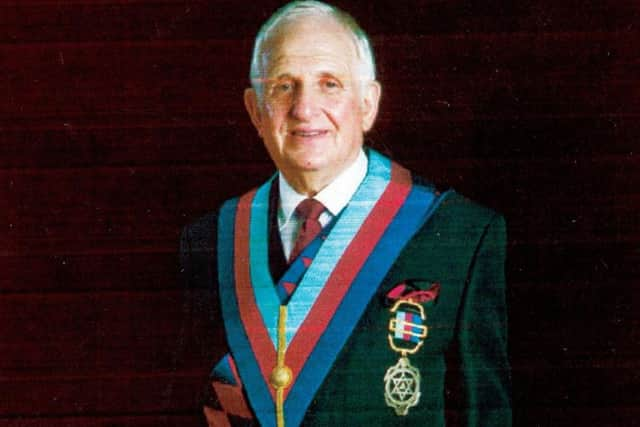

Freemasonry is not a religion but members are required to believe in a 'supreme being', meaning that while atheists would not be welcomed into its ranks, members of all faiths are accepted.
Advertisement
Hide AdAdvertisement
Hide AdEdward Patnick, who has been a mason for nearly half a century, explains how he was turned down by a Sheffield golf club because he is Jewish, yet was welcomed into the fold by fellow masons and enjoys mixing with people of various religions and backgrounds within the society.
As for what happens during the ceremonies, the 81-year-old describes them as 'playlets' illustrating the organisation's key principles: love thy neighbour, charity and belief in a supreme being.
The meetings themselves typically only last for around 40 minutes and are followed by drinks and a meal, at which members can socialise more informally.
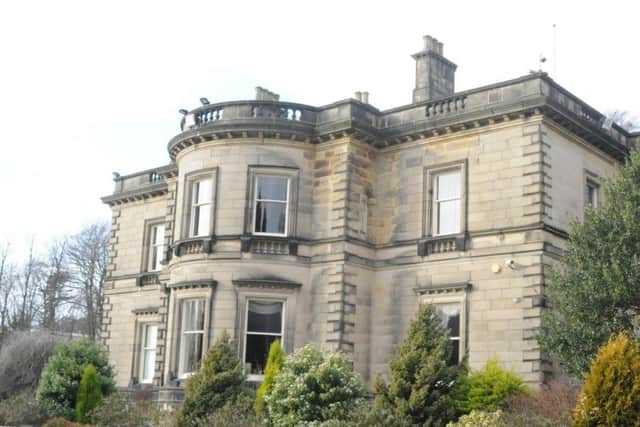

Talk of business, religion and politics is strictly banned, which must make it one of the few places you can escape mention of Brexit these days.
Advertisement
Hide AdAdvertisement
Hide AdAsked what he enjoys most about masonic life, Mr Patnick picks a word frequently used by others within the society - 'camaraderie'.
"I enjoy the friendships I've formed with people I never would have had the chance to meet otherwise through school, work or my religion. There's a great sense of camaraderie among members," says the retired junk dealer, who ran second-hand furniture shops in Hillsborough and Firth Park.
It was this desire for camaraderie which I'm told contributed to a huge spike in membership after both world wars, with returning troops seeking a substitute for the brotherly bonds built on the battlefront.
In this spirit, masons are expected to help other members in times of need, but never where that would compromise their public duties - something which is a bannable offence.
Advertisement
Hide AdAdvertisement
Hide AdWhen one mason died young, for example, I'm told other members dug deep to pay for his children to continue their education. The widows of former masons, meanwhile, are given hampers and flowers each year and continue to be invited to functions.
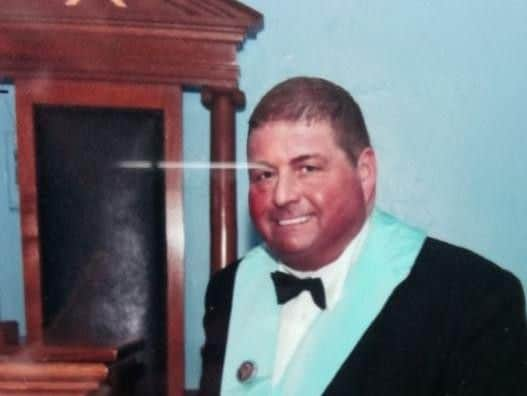

Membership has gradually declined since the post-war peak but there are still some 200,000 masons in the UK and around six million worldwide.
Another big reason for joining is the chance to give something back to the community in which you live.
Freemasons donate more to charity than any other organisation in the UK except the National Lottery, with approximately £33 million given to good causes last year.
Advertisement
Hide AdAdvertisement
Hide AdIn Sheffield, Whirlow Hall Farm Trust, which helps disadvantaged children; Weston Park Cancer Charity; and Sheffield Hospital Radio are among the charities to have benefited from donations totalling thousands of pounds in recent months.
Pete Eville, a company director who is acting junior grand deacon of the Masonic Province of Yorkshire, West Riding, said: "I really like being able to make a difference in my community, largely anonymously.
"I enjoy walking through my community and noticing things I've contributed to or seeing a smiling face in a photo and knowing I had something to do with that."
The secret handshakes and symbols are vestiges of the days when many stonemasons constructing churches and cathedrals around the country could not read or write and needed another way to prove their skills and experience.
Advertisement
Hide AdAdvertisement
Hide AdAny suggestion these handshakes might be used outside a lodge to seek favours in high places is nonsense, I'm told, not just because it would look ridiculous but because attempting to use your membership for personal gain would see you thrown out of the society.
Jonathan Gillott, who became a mason 15 years ago, says members are often amazed to discover neighbours or work colleagues they have known for years are also masons after meeting them at masonic functions.
John Boyington, who is the assistant provincial grand master for South Yorkshire, said: "Lots of organisations have their own handshakes, like the Boys Brigade or the Scouts. If you tried to use one of our handshakes in everyday life, not only would it be extremely uncomfortable but people would look at you like you're mad.
"The idea we have a secret way of identifying ourselves to one another across a courtroom or to a police officer pulling you over for speeding is absolute nonsense.
Advertisement
Hide AdAdvertisement
Hide Ad"If ever we suspected someone was attempting to gain advantage from being a Freemason, they would be thrown out.
"We're not out to take over the world. Most of us are just out to have a good time and raise money for deserving causes.
"We're not looking for rich men or powerful men. We're looking for men who want to try to better themselves. But above all, you will only get people to give up their time if they're enjoying themselves."
The 64-year-old, who began his career as a nurse before moving into the civil service, says there is no discrimination on the basis of race, religion or any other grounds, and that most applicants are accepted, provided their motives are right.
Advertisement
Hide AdAdvertisement
Hide AdBut glancing at the photos lining the walls at Tapton Hall, it is clear the local membership has at least historically comprised largely of white men who are middle-aged or older.
There are now women's lodges, including one which meets at Tapton Hall, but the female ranks only number around 5,000 - a fraction of the male masons.
Mr Boyington said: "My wife's a lady mason and she's just as keen to preserve the ladies-only masonry as we are to preserve the men-only masonry. I hope the lady masons organisation will grow but that's a matter for them."
As for claims of secrecy, Mr Boyington says the Freemasons are no different from most other organisations in not publishing membership details - not least because doing so would, he explains, breach the Data Protection Act.
Advertisement
Hide AdAdvertisement
Hide AdHe says masons are free to divulge their membership, and are encouraged to talk about the society to help improve public understanding
"People can find out just about anything they want to about masonry online, and we're happy to show anyone around the lodge rooms at Tapton Hall should they wish," he adds.
"We don't have anything to hide but it's easy for people to write stories about conspiracies because you can't prove them one way or the other."
FREEMASONRY IN SHEFFIELD
There are two masonic halls in Sheffield. One at Tapton and the other in Dore, opposite the railway station. Between them, they have around 900 members belonging to 32 lodges
Advertisement
Hide AdAdvertisement
Hide AdTapton Hall has been owned by the Freemasons of Sheffield since 1967. Before that they met at what is now The Graduate pub on Surrey Street, opposite Sheffield's Central Library. The watering hole still bears the masonic symbols.
FREEMASON FACTS
Freemasons meet in lodges, which are a throwback to the lodgings in which stonemasons would stay when working on churches and cathedrals
The masonic aprons sported by masons also have their origins in the days of stonemasons, who wore similar garments for protection while working
The term 'giving someone the third degree' originates from Freemasonry, in which the third degree is the final stage before becoming a fully-fledged mason, which involves close questioning
Advertisement
Hide AdAdvertisement
Hide AdFreemasons are charged an initiation fee and annual subscription, and they are also required to buy their ceremonial regalia and pay for the dinners which follow most meetings. The costs vary from lodge to lodge
Famous Freemasons have included Sir Winston Churchill, Rudyard Kipling, Oscar Wilde and Peter Sellers